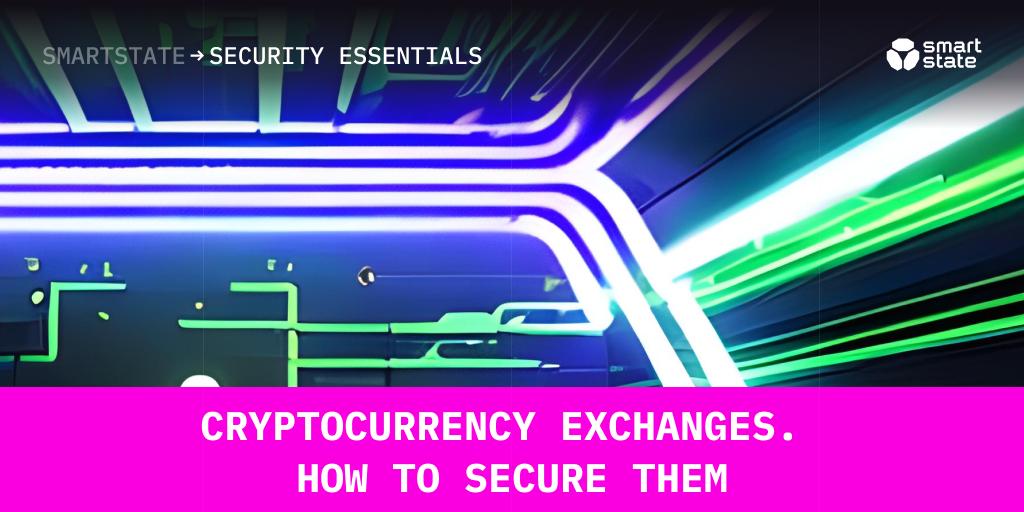Cryptocurrency exchanges. How to secure them
Cryptocurrency exchanges (privately-owned platforms which make trading of various crypto assets easier and more convenient) need to be secure. A lot of users are attracted by reliability and security, not only popularity and convenience. They can lose trust if lack of confidentiality is suspected. In the quickly developing crypto world owners of platforms seek better security conditions and comfort for future users to attract more customers.
Ways to secure crypto exchanges
Although the majority of crypto exchanges are well-cared for, they still may have vulnerabilities and ‘back doors’, allowing hackers to crack down users’ wallets and withdraw assets. Thus, it is advised to implement some standard security routines and practices.
- Security audits. Everything's better with a good and regular audit. Systematic exchange auditing will ensure it is free from bugs, flows, vulnerabilities or other issues which can make leaks or attacks possible. Regular audits also increase trustworthiness, which attracts investors and ensures exchange reliability and that it suits all regulations. One of the most advisable types is SOC2 (System and Organization control) which focuses on protecting users’ data.
- Pen testing. Another important type of testing is penetration testing, as every exchange must build a wall of security measures and get prepared against real attacks. One of the best ways to prepare for an attack is to model it in a controlled environment and see what happens. An actual attack will then be easier to repel, as the testing would reveal bugs and vulnerabilities which hackers may use. Such tests are advised to be taken at least annually, but better more often.
- IP address tracking and messaging. Tracking users’ IPs may seem like breaking their privacy, but it serves security reasons as well. It might help detect suspicious activity and warn the user of the account if the IP address changes unexpectedly (which could mean someone else took hold of it). Alert messages are also a useful thing, which helps to keep the user informed if there are transactions or withdrawals. While they may seem annoying to somebody, they also help to raise trust and offer the user the ability to verify in a timely manner if the transaction was legitimate.
- Operation limits. Reasonable limitations are always helpful, especially in terms of security. It helps to prevent accidental and malicious withdrawals (for example, some small sum is set. If the transaction is bigger, the system would require KYS verification). Also, setting up multi-factor verification on the platform will make it harder to break in and therefore less attractive for possible attackers and scammers.
- Logging specifics. A complex logging-in process helps to secure an exchange (for example, MFA), but logging out must also be secure. The user might forget or have no possibility to close the session, so automated log out will keep the exchange and users’ accounts safer. The time frame may be different so the user might choose any (starting from half an hour), after the set time the system will be automatically closed.
- Session history. Saving and tracking the history of users’ activity can help to detect and react fast to any suspicious activity (for instance, if there is suspicious logging in to a customer's account). In this case a customer is sent an alert message by email or a push-notification proposing to stop the activity and change the password. It also helps to track and see the activities taken on the account if needed.
- Community involvement. The last but not least and very important stage of keeping exchanges secure. Staying in touch with the community and keeping them up-to-date with important information (issuing articles, blogs or videos, holding webinars or interviews, connecting in social networks) about possible risks and security measures will make the ‘human factor’ work for, not against the security. It will raise not only the level of trust, but also will encourage the users to be involved in the process. Feeling a ‘part of something major’ they may also help to get information and report scammers, for example. Bug bounty programs are another successful strategy. Users get rewarded for making research and submitting vulnerabilities. It helps to make the platform security stronger and raise community solidarity and satisfaction.
Conclusion
Not only wallets and personal information security needs to be cared for at a high level. Cryptocurrency exchanges, which wallets are tied to and where the processes (such as transactions) are carried out might be vulnerable as well. Thus, they need regular care (testing, auditing). Securing the operations and keeping all the community informed helps to build a stronghold, which will not be easy to take over and which will keep users’ belongings safe.

